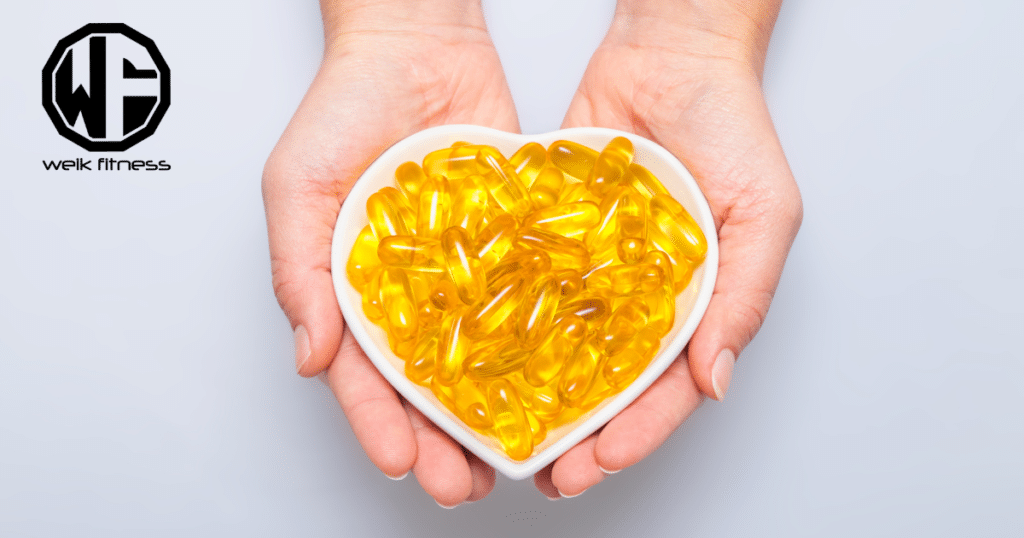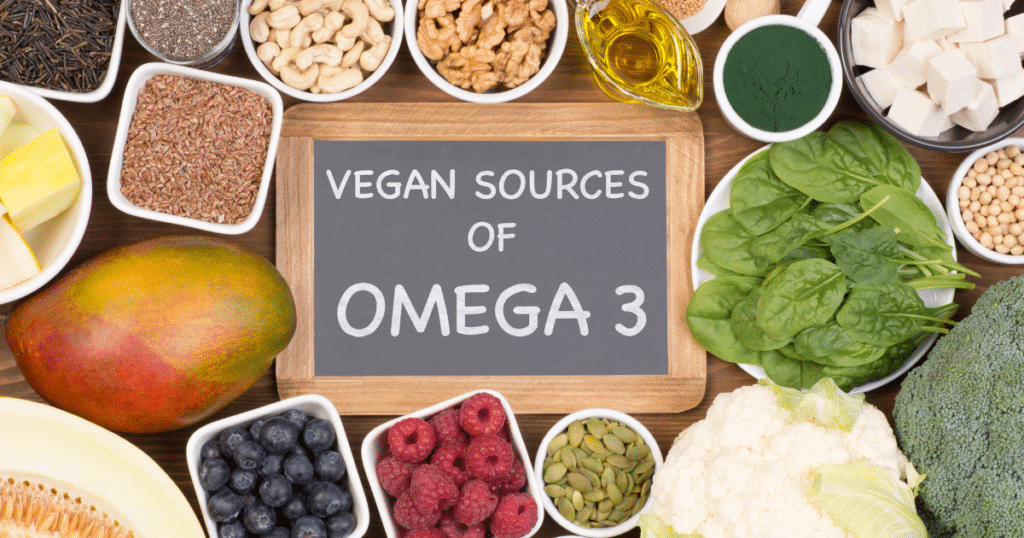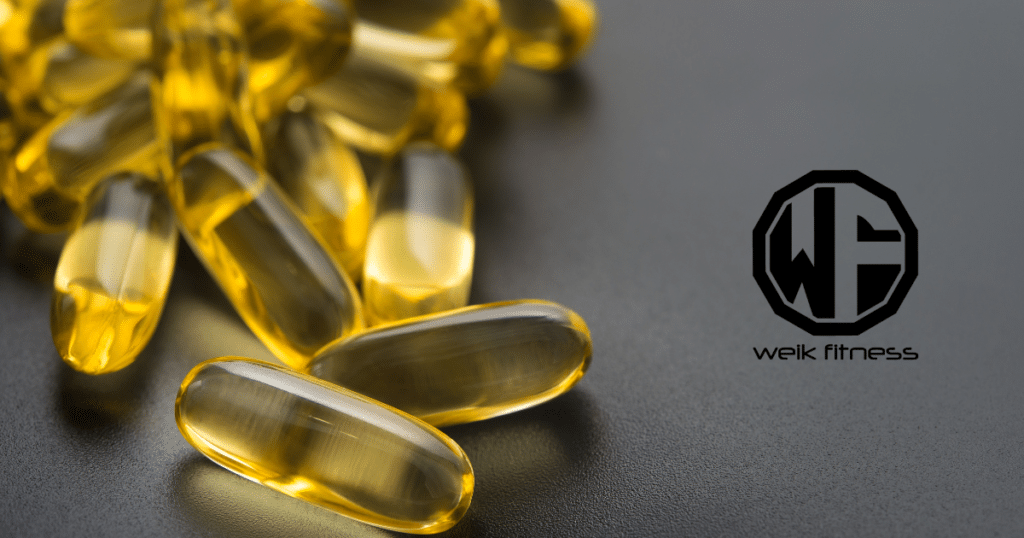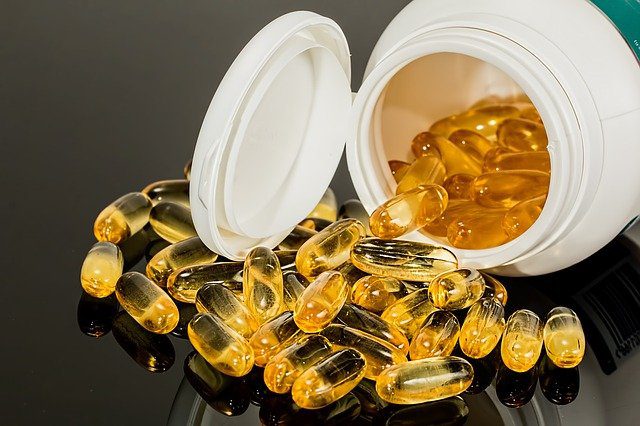Are Plant-Based Omega-3s the Future of Healthy Fats?
If you want to boost your healthy fat intake but aren’t a fan of fish oil, you have great options. Maybe you want to avoid those unpleasant fishy burps, or perhaps you need a vegan-friendly source that fits your lifestyle. Excellent plant-based omega-3s are available that check all these boxes.
One product line that stands out is Wiley’s Finest CatchFree Omega.
It comes in both liquid and softgel forms, featuring algae-based omega-3s that provide the full spectrum of fatty acids your body needs. These powerful nutrients help support heart and brain health, boost immunity, and promote overall wellness.
Related Article: The 7 Best Foods Rich in Omega-3 That Can Improve Health
Let’s take a closer look at what makes these plant-based omega-3s a game-changer for your health routine.
Disclaimer: This article is for informational purposes only and is not meant to treat or diagnose any condition. It is recommended that you speak with your doctor before starting any exercise program, changing your daily nutrition, or adding any supplements to your regimen.
Table of contents
Key Takeaways
- The Conversion Problem: Plant-based ALA omega-3s (from flax, chia, walnuts) are not easily used by the body. The conversion rate to the most beneficial forms, EPA and DHA, is often less than 10%.
- Direct Sources are Key: Algal oil provides pre-formed EPA and DHA, just like fish oil, making it a highly effective plant-based alternative with comparable bioavailability.
- Advanced Plant Oils: Ahiflower® oil is a unique plant source rich in SDA, a type of omega-3 that converts to EPA up to four times more efficiently than ALA from flaxseed oil.
- Go to the Source: Fish get their omega-3s from eating algae. Algal oil supplements “cut out the middleman,” offering a pure, sustainable, and contaminant-free source of these essential fats.

What Are Plant-Based Omega-3s?
Plant-based omega-3s are essential fatty acids found in plants that provide a wide range of health benefits. These fats are crucial for maintaining healthy bodily functions and are strongly linked to heart health, brain function, and reducing inflammation.
In my experience as a sports nutritionist, understanding the three main types of omega-3s is key to making the right choice for your diet.
- ALA (Alpha-Linolenic Acid): This is the most common omega-3 found in plants like flaxseeds, chia seeds, and walnuts. Your body can’t produce it, so you must get it from food. However, the body’s ability to convert ALA into the more powerful omega-3s is very limited.
- EPA (Eicosapentaenoic Acid): Found mainly in fatty fish and algae, EPA is celebrated for its powerful anti-inflammatory properties and its significant role in supporting cardiovascular health.
- DHA (Docosahexaenoic Acid): Also found primarily in fish and algae, DHA is a critical building block for your brain, eyes, and nervous system.
The biggest challenge for plant-based diets is the conversion of ALA. The National Institutes of Health states that the conversion of ALA to EPA and DHA is “very limited,” with reported rates often below 15%. This makes getting enough of the most active forms, EPA and DHA, difficult from ALA sources alone.
Related Article: Could a Smart Cap Be the Future of Supplements?
This is where algae-based supplements come in. Algae is the original source of the EPA and DHA that fish consume, making algal oil a direct, potent, and vegan-friendly way to meet your body’s needs without relying on inefficient conversion.
What Foods Are High in Plant-Based Omega-3s?

Many plant foods are excellent sources of ALA (alpha-linolenic acid), which contributes to your overall omega-3 intake. While you can’t rely on ALA alone for all your EPA and DHA needs, incorporating these foods is a fantastic move for your health.
Here are some of the top plant-based omega-3 foods, with a look at how much ALA they provide.
| Food Source | Serving Size | Approximate ALA Content (grams) |
|---|---|---|
| Flaxseeds (ground) | 1 tablespoon | 1.6 g |
| Chia Seeds | 1 tablespoon | 2.5 g |
| Walnuts | 1 ounce (7 walnuts) | 2.5 g |
| Hemp Seeds | 1 tablespoon | 0.9 g |
Other valuable sources of ALA include:
- Edamame and Soybeans: A versatile protein source that also delivers a solid dose of ALA.
- Canola Oil: A common cooking oil that contains ALA.
- Seaweed and Algae: These are unique because, unlike other plants, they are direct sources of EPA and DHA.
While these foods are a great addition to any diet, remember the conversion issue. If your goal is to increase your levels of EPA and DHA for specific health benefits, an algae-based supplement is the most reliable and efficient strategy.
Why Are Plant-Based Omega-3s So Important?

For those following a vegan diet, getting enough healthy fats can be a challenge. While people who eat fish can get EPA and DHA directly, vegans must be more strategic. One of the easiest ways to ensure you get the recommended daily intake of full-spectrum omega-3s is through high-quality supplements.
While flaxseed oil is a popular choice, two other ingredients are revolutionizing the world of plant-based omega-3s: Ahiflower seed oil and algal oil.
Many people haven’t heard of these, so here’s what makes them so special.
Ahiflower Seed Oil
This unique oil comes from the seeds of the corn gromwell plant and is a powerhouse of omega fatty acids. Its standout feature is a high level of stearidonic acid (SDA), an omega-3 that converts to EPA far more efficiently than ALA. Research on Ahiflower oil, pioneered by companies like Natures Crops International, has shown it can convert to EPA up to four times more efficiently than flaxseed oil.
Related Article: Should Kids Take Omega-3 Supplements?
Ahiflower oil also provides alpha-linolenic acid (ALA) and gamma-linolenic acid (GLA), an anti-inflammatory omega-6. This balanced profile helps reduce inflammation, supports brain and skin health, and promotes healthy cholesterol levels.
Algal Oil
Algal oil is the second game-changing ingredient. It’s nearly identical in function to fish oil because it delivers both DHA and EPA directly, without the need for conversion. This makes it an incredibly effective source of plant-based omega-3s.

Leading biotech companies, such as DSM and Veramaris, cultivate microalgae in controlled environments to produce pure, high-quality algal oil. This process is not only sustainable but also ensures the oil is free from ocean-borne contaminants like mercury and PCBs that can be a concern with fish oil. The benefits of algal oil mirror those of fish oil, supporting heart, brain, eye, and skin health while helping to control inflammation.
Algae Is a Source of Healthy Fats and Fish Eat Algae, So…
Here’s a simple but powerful fact: fish don’t produce their own omega-3s. They get them from their diet, which consists of microalgae. Without algae, the healthy fat content in fish would be drastically lower. When fish consume algae, they accumulate these essential fatty acids in their tissues.
Related Article: Is Duckweed the Next Plant-Based Protein Source?
By using algal oil, you’re simply cutting out the middleman (the fish) and going directly to the original, pure source of plant-based omega-3s.
This is made possible by modern algae farms, where specific strains are grown and harvested specifically for use in high-quality health supplements. This sustainable approach provides all the benefits without impacting marine ecosystems.
Are Plant-Based Omega-3s as Good as Fish Oil?

This is a critical question, and the answer depends entirely on the *type* of plant-based omega-3 you choose. Relying solely on ALA from sources like flax or chia is not equivalent to fish oil due to the poor conversion rate. However, algal oil is a different story.
Multiple studies have confirmed that the bioavailability of DHA and EPA from algal oil is comparable to that of fish oil, meaning your body absorbs and utilizes them just as effectively.
Here’s a breakdown of how they compare on key health benefits:
- Heart Health: Both fish oil and algal oil, rich in EPA and DHA, are strongly linked to reducing triglycerides and supporting cardiovascular function. The American Heart Association recommends about 1 gram per day of EPA plus DHA for people with existing heart disease.
- Brain Function: DHA is a primary structural fat in the brain. Algal oil provides a direct, potent source of DHA, making it just as effective as fish oil for supporting cognitive health.
- Purity and Sustainability: Algal oil has a distinct advantage here. It is grown in controlled environments, making it free from the heavy metals and pollutants that can be found in fish. It is also a more sustainable source, helping to protect marine ecosystems from overfishing.
So, to sum it up: while ALA-based plant oils are beneficial, they aren’t a direct replacement for fish oil. Algal oil, on the other hand, is a scientifically validated, equally effective, and often purer alternative for getting your essential EPA and DHA.
Why Should You Consider Using Wiley’s Finest CatchFree Omega Plant-Based Omega-3s?
If you’re looking for a top-tier plant-based omega-3, the Wiley’s Finest CatchFree Omega line is a standout choice. In my years of analyzing supplements, I appreciate when a brand combines quality ingredients with transparency. This product addresses the common concerns with both fish oil and other plant-based options.
The liquid version comes in a pleasant Tropical Mango flavor, completely avoiding any fishy taste. I’ve personally used these products and can confirm they are easy to take. The choice between the liquid or softgels simply comes down to your preference.
Each serving delivers over 2,300 mg of plant-based omega-3s, including 500 mg of crucial DHA. It solves the vegan omega-3 dilemma by providing a full spectrum of fatty acids (DHA, ALA, SDA, and GLA). The formula is also enhanced with 1,000 IU of vegan vitamin D3 and 22 IU of vitamin E.
Wiley’s Finest builds its formula on trusted, branded ingredients:
- Algarithm™: A fresh-tasting, non-GMO, and solvent-free vegan DHA from algae.
- Ahiflower®: Provides a balanced, full-spectrum source of plant-based omegas to nourish your body.
- Vitashine™: A 100% vegan Vitamin D3 derived from lichen.
Furthermore, the product line holds key certifications that guarantee its quality and safety. It is certified non-GMO by NSF and produced in a facility that has received Safe Quality Food (SQF) certification, which validates its adherence to rigorous global safety and quality standards. It is also certified vegan by the Vegetarian Society, ensuring it’s free from animal ingredients and animal testing.
Are you interested in trying Wiley’s Finest CatchFree Omega for yourself? You can find both the liquid and softgel versions on their website or available at retailers across the nation.
Plant-Based Omega-3s FAQs
How much plant-based omega-3 do I need per day?
The National Institutes of Health suggests an adequate intake of 1.1-1.6 grams of ALA per day for most adults. However, for EPA and DHA, many health organizations recommend a combined daily intake of 250-500 mg for healthy adults to support overall health. A 2022 analysis in the Journal of the American Heart Association found that consuming around 3 grams per day was optimal for helping to lower blood pressure.
Can I get enough EPA and DHA from ALA conversion alone?
It’s very difficult for most people. The conversion of ALA to EPA is typically low (around 5-10%), and its conversion to DHA is even lower (often under 5%). Factors like genetics and a high intake of omega-6 fatty acids can further reduce this efficiency. Therefore, relying solely on foods like flax and chia seeds is unlikely to provide optimal levels of EPA and DHA.
Are there any side effects of algal oil?
Algal oil is generally considered very safe. The U.S. Food and Drug Administration advises consuming no more than 5 grams per day of combined EPA and DHA from supplements. Any side effects are usually mild and can include digestive discomfort, but algal oil is often better tolerated than fish oil as it avoids the “fishy burps.”
Is algal oil more sustainable than fish oil?
Yes. Algal oil is a highly sustainable alternative. It is cultivated in closed, controlled systems on land, which does not disrupt marine ecosystems or contribute to overfishing. This process also ensures a pure product, free of ocean-borne contaminants. A 2024 report from Veramaris, a major producer, highlighted a 61% increase in production alongside a 5.6% reduction in emissions, showing the potential for scalable and climate-friendly growth.


*Disclosure: This article may contain affiliate links or ads, which means we earn a small commission at no extra cost to you if you make a purchase through these links. These commissions help support the operation and maintenance of our website, allowing us to continue producing free valuable content. Your support is genuinely appreciated, whether you choose to use our links or not. Thank you for being a part of our community and enjoying our content.
PLEASE CONSIDER SHARING THIS ON YOUR SOCIAL MEDIA TO HELP OTHERS LEARN MORE ABOUT THIS TOPIC.





